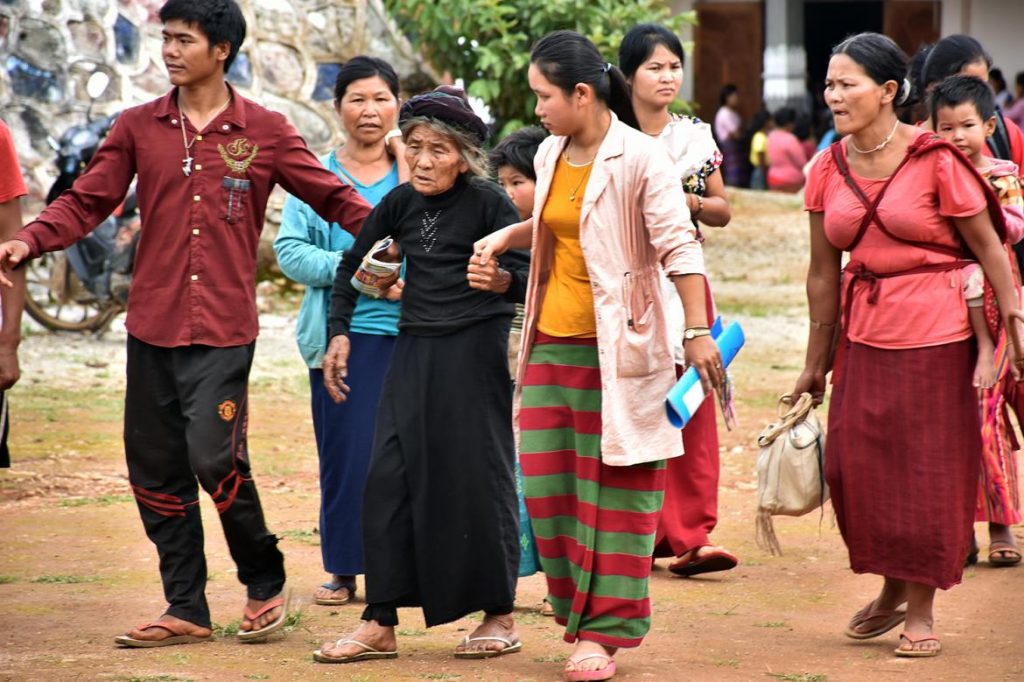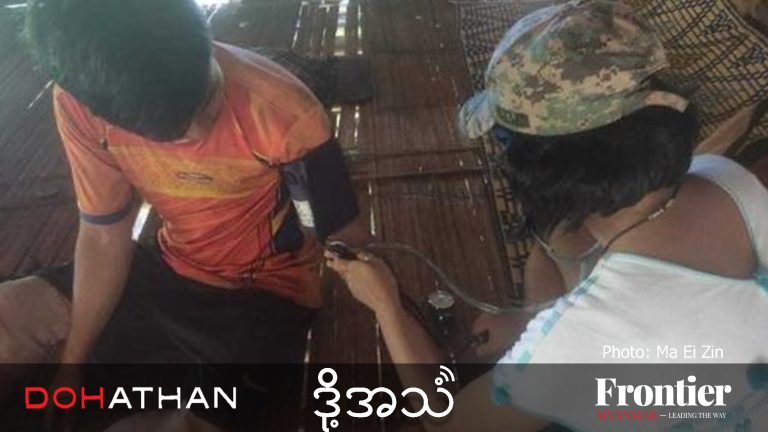Adopting a neutral attitude about the belligerents in conflict areas of Myanmar that disregards lived experiences can have fatal consequences for people on the ground.
By STELLA NAW | FRONTIER
INTERNATIONAL ANALYSTS and academic researchers often adopt a stance of objective neutrality when discussing armed conflict in Myanmar, thinking it adds weight and credibility to their words. However, a “neutral” attitude towards Myanmar’s civil wars that disregards unequal power relations and the lived reality of people on the ground can have deadly consequences for people living in conflict zones.
A Western academic from a leading peace-research centre in Norway told me in 2016, “Ethnic people blame the Burmans [Bamar] for being racists, yet they are just as racist towards the Burmans”. This common judgment is a false moral equivalence. Ethnic nationalities face institutionalised discrimination at all levels of Myanmar society.
It is self-preservation that forced ethnic nationalities to take up arms to defend themselves from state violence and to protect their ancestral lands. Overlooking the experiences of ethnic nationalities and taking the apparently neutral line that “both sides are racist” feeds the assumption that ethnic people share the blame for the violence they suffer.
Naw K’nyaw Paw, the general secretary of the Karen Women’s Organisation and a recipient in 2019 of an International Woman of Courage Award presented by the United States Secretary of State, told me, “The fact is that the Burma Army has had a long history of gross human rights violations and a policy aimed at wiping out ethnic people and taking over control of ethnic lands. This vision is being executed through ‘Four Cuts’ and ‘Scorched Earth’ approaches, aspiring through these to weaken EAO [ethnic armed organisation] support and actively targeting civilians to achieve these ends.”
Support more independent journalism like this. Sign up to be a Frontier member.
There is also a tendency by analysts and researchers to discredit or dismiss those with different or opposing perspectives by claiming that they are not neutral. Mr Dustin Barter, a PhD researcher at Cambridge University with humanitarian experience in Myanmar’s conflict zones, identifies a similar impulse in the humanitarian sector. The fear of being discredited pushes some aid workers “to try and be ‘neutral’, which actually means euphemising and ignoring what are nearly always uneven conflicts where there is a clear oppressor,” he told me.
Army spin
Given the scale of abuses perpetrated by the Myanmar military over decades, it can hardly be objective to say that “all sides” of the conflicts have violated human rights to an extent such that there is no clear victim or perpetrator. Any analysis that glosses over decades of Myanmar army atrocities against civilians is taking its side, even if there is no intention to do so.
An analysis of the August 15 attacks on the Defence Services Technological Academy at Pyin Oo Lwin in Mandalay Region and other targets in northern Shan State by three members of the Northern Alliance found that they were “equally culpable in their abuses against civilians and their attacks should likewise be investigated as possible war crimes.”
The analysis, “Why war will never end in Myanmar”, appeared in online publication Asia Times on August 20. Shortly afterwards, in the last week of August, Myanmar military spokespeople Major-General Tun Tun Nyi and Brigadier-General Zaw Min Tun both used the phrase “war crimes” on separate occasions when talking to journalists about the August 15 attacks. It may be a coincidence but the military had not previously accused its enemies of “war crimes” at its briefings, suggesting a deliberate change in language choice. Whatever the author’s intentions, the result was a legitimisation of the military’s disingenuous talking points and spin.
K’nyaw Paw said, “All civilian lives are important, no matter what side of the conflict they are on. However, you cannot compare the conduct of the Burma Army with that of the EAOs when the Burma Army considers targeting civilians a necessary and acceptable part of this conflict.”
Moral equivalence is especially harmful in research that will be considered by governments for making policy.
An investigation into “public service delivery in ethnic minority areas” by researchers at University of Toronto and funded by the Canadian government is being conducted in partnership with the Myanmar Institute for Peace and Security, a Yangon-based think tank that is distrusted by many ethnic civil society groups because of what they see as a consistent habit of soft-pedalling of Myanmar army abuses.
MIPS’s summary report for 2018 includes tallies of armed “clashes” and “incidents” involving explosives but does not record troop movements, the resupplying and extension of bases and the overall, continued militarisation of ethnic nationality lands, where the presence of Myanmar army soldiers acting with impunity is an everyday threat for local communities, whether or not they engage ethnic armed organisations in combat. More than a question of methodology, it leaves politics and lived experiences in the dark.
What’s worse is that analysts and academics often make interpretations of equivalence – whether directly, or by reducing wars of conquest and liberation to a quantifiable series of “clashes” – without giving enough thought to how their analysis, and its influence on decision-makers, will impact people living in conflict zones.
Neutrality by necessity
Early on August 31, a 60 millimetre mortar shell slammed into Maw Hit village in northern Shan’s Kutkai Township and killed five people: a woman, 34, and her son and daughter, aged 14 and nine, and a woman, 19, and her four-month-old daughter. Four villagers were injured. Although no one claimed responsibility for the incident, the Myanmar army has been known to use 60mm mortars of the type whose remnants were found in the village. However, church leaders and the wider community chose to remain silent.
If community members were to publicly accuse the Myanmar army of responsibility for the shelling, they would risk violent retaliation from the military and the possibility of the four injured being denied medical treatment at the government hospital in Lashio. Speaking out publicly to demand justice could also result in them being charged under the Unlawful Associations Act for aiding a rebel group, which can result in a prison term of five years. This fear of being seen as taking sides is a silent indignity suffered by civilian populations in conflict zones, with real and immediate consequences.
After the incident, civil society organisations in northern Shan, including humanitarian groups, issued a statement urging both sides to stop fighting so they could continue to provide emergency assistance to people displaced by the conflict.
The “neutrality by necessity” faced by residents of remote conflict areas is far removed from the liberties enjoyed by international analysts and researchers, who can speak out with little personal cost. As outsiders, they always have the option of leaving, but the communities they are studying do not have that choice.
“In my opinion you cannot be neutral in conflict. You have to weigh up who has more power and gets more support and who is using this to oppress people on a wide scale,” said K’nyaw Paw.
Anyone trying to understand or explain armed conflict in Myanmar needs to be aware that what is being said and how it is said, can have serious and immediate consequences for those who bear the brunt of the fighting.







